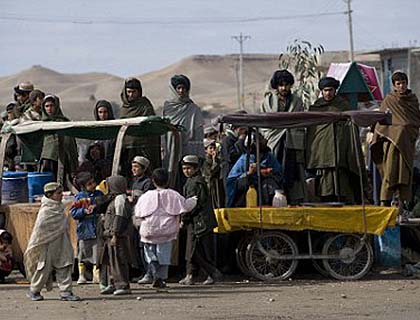The militancy in Afghanistan is raging once again. The Afghan National Security Forces (ANSF) are overwhelmed by the growing number of Taliban attacks across the country and in major cities, particularly Kabul. Attack on the Afghan parliament has an important political significance because the insurgents could have paralyzed the country’s symbolic centre of power. Similarly, the economic stagnation and poor administration have compounded the challenges.
On June 23, all of the main state bodies in Afghanistan lost their constitutional basis. The Afghan Parliament’s term ended on June 22 with no new parliament in line to replace it due to the government’s failure to hold elections this past April. The executive branch, led by the National Unity Government, also lacks constitutional mandates, as the new government – the public believe – was the product of a political deal rather than a formal electoral process.
The Supreme Court, the attorney general’s office, and the Constitutional Oversight Commission are all currently run by acting heads. A constitutional crisis is quickly descending upon the country as it faces an immense security challenge in the Taliban’s nationwide “spring offensive”. On top of this already shaky foundation, the country’s debilitating economic stagnation can only further aggravate its constitutional, political, and security crises.
People live in a pathetic state. The security crisis and economic stagnation have paralyzed their life. The simple individuals are the main victims of conflicts carried out by the Taliban militants. As a result, a large number of families have been displaced internally from restive parts of the country. Moreover, the larger part of the country suffers from unemployment and economic challenges. The current economic slumps embitter not only the old men – who sweat from dawn to dusk to make the ends meet – but also the businessmen. After all, abducting, threatening and killing national investors and businessmen for money, discourage them from investing in the country.
With the influence of the militants, the women would be the first to be preyed upon. As a result, the Islamic State groups have warned women in Nangarhar province through releasing a notice not to get out of their homes unless having necessary tasks – reports say. It is publicly known that Afghan women suffered bitterly under the Taliban regime. They were bereft of their rights to freedom, education, etc. For example, the school doors were closed for the girls. However, the Islamic State groups have surpassed the Taliban in extremism and radical stereotypes – this fact was confessed by the Taliban’s senior leader Aymen al-Zawahiri with the very emergence of the Islamic State in Iraq and Syria. Therefore, the women would suffer worse if the IS affiliated groups dominate any parts of the country.
Due to political wheeling and dealing, corruption parallels other challenges. Throughout the past 13 years, high levels of corruption and bad governance have seriously thwarted the international community’s efforts to stabilize Afghanistan. Millions of dollars that were allocated for the reconstruction and development of Afghanistan were misused or wasted.
Despite the lofty promises of the National Unity Government’s heads during their presidential campaigns, little progress has been made, and Afghanistan remains at the bottom of Transparency International’s Corruption Perception Index.
According to the US Special Inspector General for Afghan Reconstruction (SIGAR), corruption remains one of the major impediments to the stabilization and reconstruction process in Afghanistan.
An alarming report was recently published by SIGAR on the Ministry of Education’s falsification of data. Some senior officials from the ministry had deliberately fabricated data and statistics on the country’s number of schools and teachers in order to steal international funding, diverting it from the reconstruction and development of Afghanistan. In fact, millions of US taxpayer dollars have paid for fake schools and ghost teachers in Afghanistan.
“Until now, the Afghan government and the donor community have tried hard to curb corruption in the public sector. However, while politicians and public sector officials often benefit from corruption, the main perpetrator is the private sector that bribes them. In our country, corruption at its highest level takes place because of collusion between political appointees and contractors from the business sector.”
In order to reduce the current level of corruption in the country, we need to tackle it beyond the public sector. We must instill internationally accepted values such as integrity, transparency, and ethical business practices into the Afghan culture, in both the public and private sectors.
We will not win the war against terrorism and radical militants by military means alone. A responsible and accountable government – free from corruption and committed to promoting transparency and integrity across Afghan society – is the best weapon to deprive insurgents of their public support.
I believe that there is an organic relation among social, political and economic institutions in a society and therefore corruption, insecurity and economic slumps run in a parallel track. For instance, since the Taliban militants benefit from poppy cultivation in Afghanistan, eradicating drugs would be highly effective in debilitating the militants. So, a poor administration will lead to the stagnation of economic circle and fail to root out narcotic drugs. In such a case, counter-terrorism strategy will certainly meet failure. All the state machineries have to move towards their certain responsibilities coordinately so as to end the challenges. To put it succinctly, a through campaign against the political, social and economic problems is a crying need to ameliorate the status quo.

